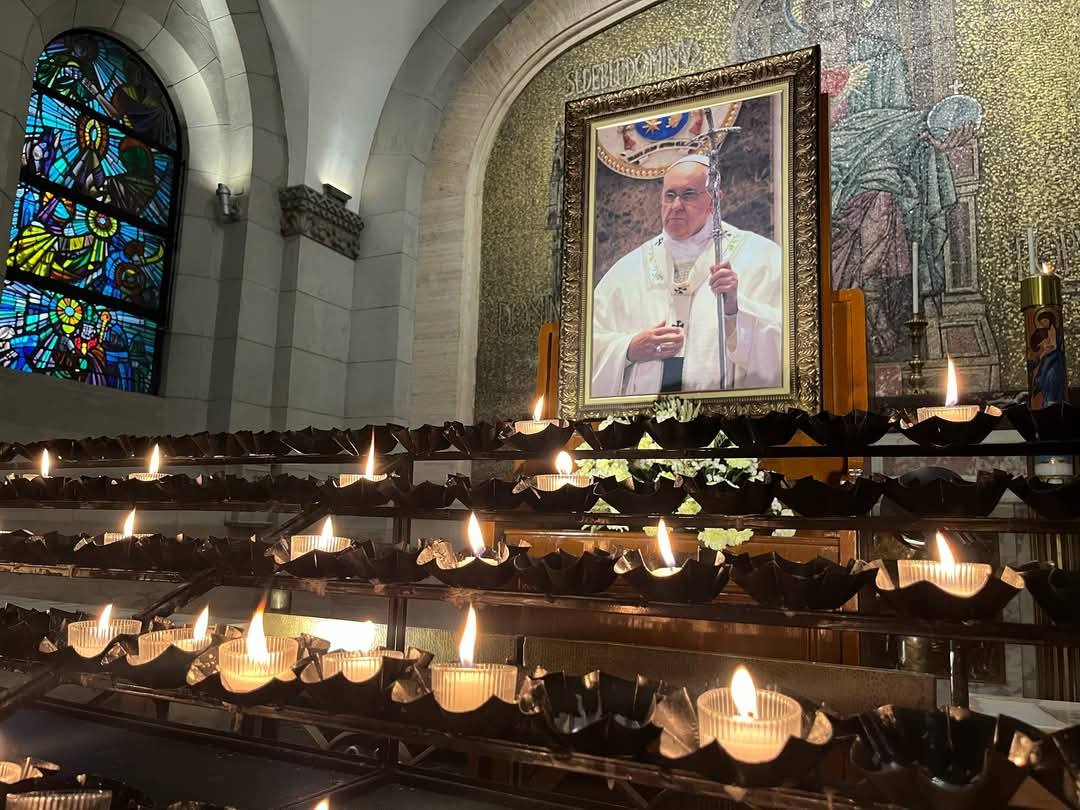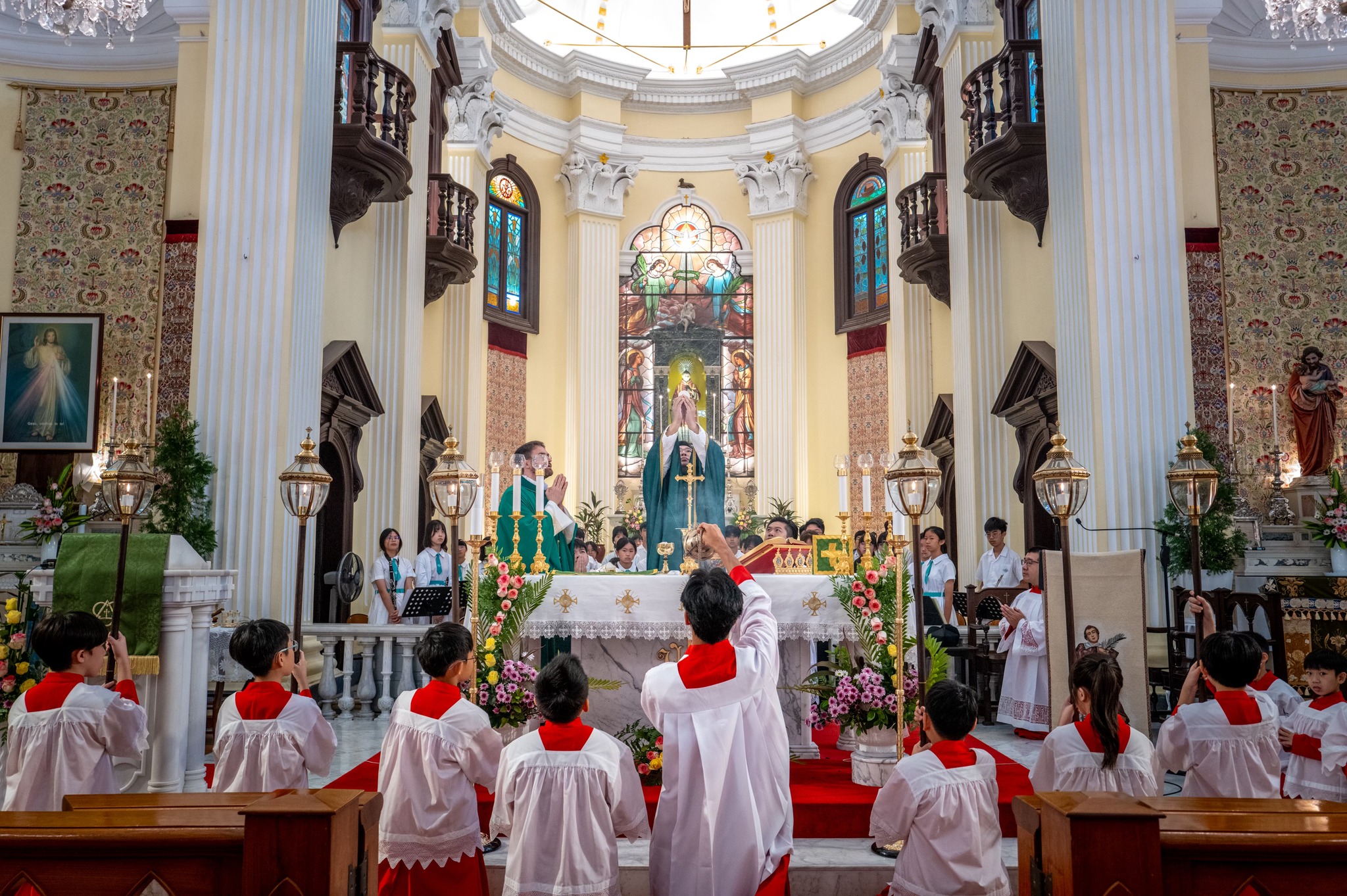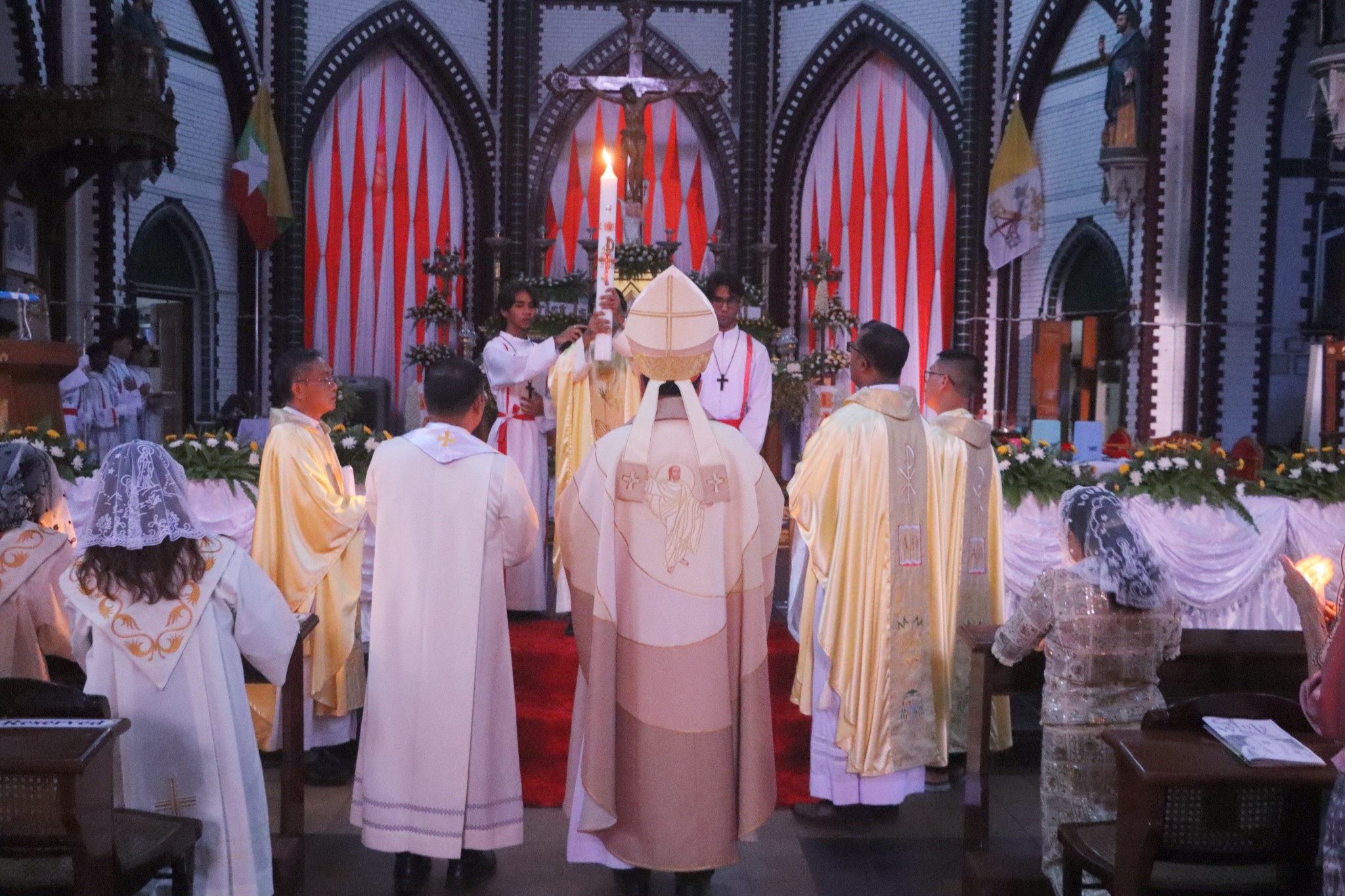FAUSTO GOMEZ, OP
Some days ago, I was meditating on my journey of life. Four important words came up: forgiveness, the cross, compassion and prayer. It convinced me that these four words are excellent vitamins of another kind for the journey of this life. I decided to share my reflection with my dear readers.
FORGIVENESS
FORGIVENESS, a quality of love of neighbor, means to erase from our heart the offenses others commit against us. The person who is unable of forgiving one who offended him or her carries a wound in the heart that will continue oozing pus unless he or she is able to forgive, or at least is on the dynamic process of forgiving the one who offended him or her. Forgiving entails healing the wound, burying the offense, forgetting it. “I have a good memory,” you tell me, “And I remember well the offense.” Ok, you remember the offense but as a healed wound. A little and thin bloody scar remains, but the wound does not hurt anymore.
Indeed, forgiveness is a characteristic of true love (charity) of neighbor, which is the other side of love and its expression and manifestation, that is, of the love of God in our heart. Remember: Jesus loved us first (cf. 1 Jn 4:19).
We pray frequently the prayer Jesus taught us, that is, the Our Father, in which we ask God the Father: Forgive us our sins as we forgive those who sin against us. Hence, the merciful God forgives us in the measure we forgive those who offend us. These words challenge us constantly, and calls us to petition the Lord the grace of forgiveness. Jesus nailed these words in our heart: If you forgive others their trespasses. Your heavenly Father will also forgive you; but if you do not forgive others, neither will your heavenly Father forgive you your trespasses (Mt 6:14-15).
To resolve conflicts, to help end wars, justice and forgiveness are needed. Justice alone tends to cold justice: an eye for an eye and a tooth for a tooth. This unforgiving retribution leaves the world darker, and the serpent of hatred goes on poisoning life, and thus the race of Cain continues! Truly, “The Practice of forgiveness is our most important contribution to the healing of the world” (Marianne Williamson).
THE CROSS
THE CROSS, symbol of suffering, is the staff of our journey of life that burdens all. How important – essential – it is to carry our cross with certain dignity and hopeful patience. For the disciples of Jesus, to bear our cross in a dignified and hopeful manner is singularly relevant always. It is a primary responsibility or obligation: If any want to become my followers, let them deny themselves and take up their cross and follow me (Lc 9:23). Our cross is – can be, if well carried – our instrument of salvation.
It is significant to underline that the cross is not the main word of our Christian faith and life. The key word is Love: Charity, or God’s love in our hearts, lightens the weight of our cross and makes of our cross instrument of our salvation. For those of us who follow the Crucified Lord, dead and risen from death, the Cross of Christ does not save us by itself, but by the unconditional love of Christ, who bore his Cross patiently and perseveringly to ramson us from sin and to show us the path of love that we ought to follow always. Does the Cross save us? The cross in itself is a horrible instrument of irrational repression, unimaginable suffering – and a humiliating death. “The Cross does not save anyone, but He [Christ] has made of the Cross the place of the greatest love, without eliminating his condition of victim, nor deny the evil done to him … We ought to make of the cross instrument of salvation for the world” (Edrien Candiard), Esperanza para náufragos, 2024).
We ought to bear our cross at least with hopeful patience, and, if possible, with loving joy, like the faithful followers of Christ – the canonized and non-canonized saints – who said and continue saying: When the cross comes, it is the Lord who comes.
Charity as love of neighbor implies necessarily helping others, principally those who are wounded by hunger, hatred, injustice and violence, who suffer cruelly in a hedonist, consumerist and warring world. Through Lent, especially through Holy Week, we sing: Where were you when they crucified the Lord? I ask myself: Where am I when they keep crucifying my Lord today, when so many brothers and sisters are persecuted and crucified by the unreasonable reason of their different race, or religion, or culture, or political affiliation?
COMPASSION
COMPASSION or mercy is an essential characteristic – with peace and joy – of charity, the theological virtue of love. Charity, as divine love in our heart, is the most perfect virtue in general, while compassion – an effect and quality of charity – is the most perfect virtue of love of neighbor.
Compassion means simply a loving reaction to the misery of another that inclines us affectively and effectively to do something to remedy his misery, that is, to feel the suffering of another and help him or her bear it according to our limited possibilities.
Compassion or mercy is an essential element of the life of Jesus and of his Gospel. God is compassionate. Jesus is the face of God’s compassion, and the disciples of Jesus ought to be compassionate or merciful. In fact, at the end of life we shall be examined on love. At the end of every day, too. This love, which is universal and not selective, and is directed principally -as in the life and teaching of Jesus – to the poor and needy. It is very clear that the life and teachings of Pope Francis may be best described, perhaps, by thus biblical text: What you do to my brothers and sisters, you do it to me(cf. Mt chap. 25).
We are talking, of course, of true compassion, because there is another kind of compassion: false compassion. One lamentable example of fake compassion: to terminate the life of unborn children and/or greatly suffering patients (abortion and euthanasia, respectively). Authentic compassion takes us to share in the sufferings of another. It does not kill the person whose terrible suffering we cannot accept (John Paul II).
The Parable of the Last Judgment does not allow any doubt: “I was hungry and you gave me food…” Lord, when did we see you hungry or thirsty? What you did to the poor, you did it to Me. I am the poor!St. Vincent de Paul advises us: “Be poor, or be a friend of the poor.” Thus, “Give to the poor, and you give to yourself” (St. Peter Chrysologus).
PRAYER
PRAYER matters much. Although we place it as the last vitamin for the journey, it is in fact the first, because it permeates the other three. Prayer means radically living constantly in the presence of God and seeing the world with the vision of God.
The Lord tells us, and St. Paul repeats, that we should pray continually and that our prayers – of adoration, of praise, of petition of gratitude – are always heard by God our Father (cf. CCC, Part IV, Art. 3).
Prayer is a loving encounter with God. Our prayer is vocal and mental, communitarian and personal: we are individual persons and disciples of Jesus, of his community, the Church. The heart of our prayer – the best prayer – is the Holy Eucharist as Word and Sacrament, “fountain and climax of our whole Christian life” (Vatican II, SC 12 and LG 11). The first Christians could not live without the Breaking of the Bread, the Eucharist.
In prayer, we worship God, One and Triune. In prayer, we appeal to the saints, above all, to Mary Our Lady. All our prayers are done through Christ our Lord: He is the mediator of all our prayers: to God, though Christ and in the Holy Spirit.
Vocal prayer – communitarian and personal – is good as long as the praying one is aware of who is praying, to Whom he is praying, and what he is saying. One may reach contemplation through attentive, devoted, humble and loving vocal prayer.
We always need – and today more, perhaps, with so much noise and little silence; we all need mental or meditative/contemplative prayer. Mental prayer is a special encounter and conversation face-to-face with God. God listens to the voice of silence, of humble and loving silence.
Considering our weakness, we practice daily the prayer of petition. Jesus encourages us: Ask and it will be given you… The Father in heaven gives good things to those who ask him” (Mt 7:7-11). God knows better than us what is convenient to us today or tomorrow – or never. We have to be sure that we only ask him for good things for our spiritual and corporal life, and for good things for our dear ones and neighbors. It is very good and healthy to end our prayers of petition thus: Your will be done. Certainly, God’s will is our best will.
Jesus, God-Man, used to retire by himself often – more than twenty times are recorded in the Gospels – to pray, to converse with the Father. Prayer is – with compassion – essential quality of Jesus’ spiritual and moral life. It must also be of his followers. Prayer is a great means to approach and encounter God, who encourages and strengthens us to be able to forgive always, to carry our personal cross patiently and to be compassionate with all, especially the marginalized on the highways of life. Prayer, true prayer, which is humble, helps us to be humble and to fight against our enemy number one: pride, which is usually accompanied by her sister envy. St. Teresa of Avila, the master of prayer, tells us: Never leave prayer. There is always remedy for those who pray. Magdeleine Delbrel, the lay mystic of the twentieth century, repeated often in her writings: “Prayer is the greatest good we can give to the world.”
From time to time, I question myself: Do I continue taking daily my four healthy vitamins, namely, FORGIVENESS, THE CROSS, COMPASSION AND PRAYER? I remind myself: here and there: Forgive, carry the cross, be compassionate and prayerful.
AND TO CLOSE, an essential final point to underline! The four vitamins for the journey of life are permeated, given life by love, charity. Love forgives. Love is compassionate. Love is prayerful. And love makes our cross bearable and even joyful. Yes, indeed, I love, therefore I truly exist!


 Follow
Follow


